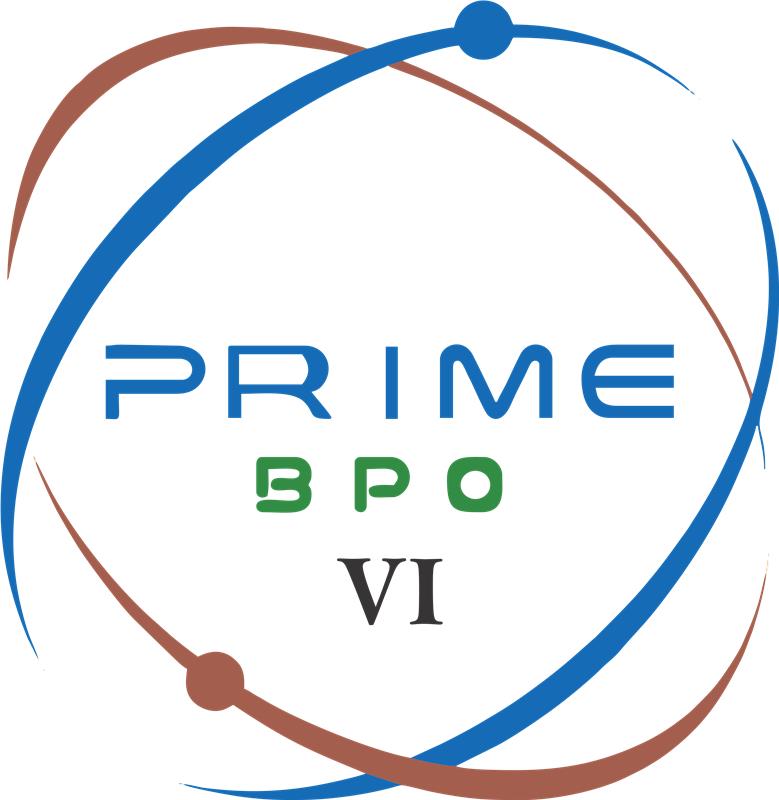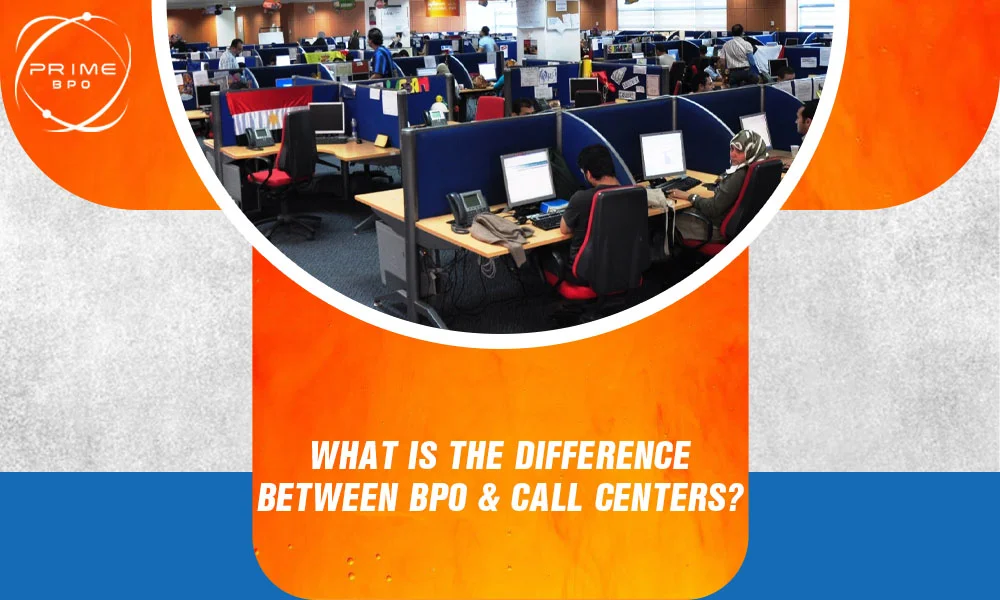Have you ever wondered what sets Business Process Outsourcing (BPO) apart from call centers? While they both handle tasks outside a company's core functions, they're quite different. BPO is the big umbrella that covers extensive services beyond just making and taking calls—it's about managing varied business processes for other companies. On the other hand, call centers focus specifically on handling customer communications, be it through calls, emails, or chats. Curious to dive into the difference between BPO and call centers and which might be right for your business needs? Let's break down their key differences and explore what makes each unique.
What is BPO?
BPO stands for Business Process Outsourcing. It's a practice where companies hire another company to handle certain tasks or services that they need but don't necessarily need to do themselves. Here's a straightforward breakdown:
Get Free Quotes
Customized Options Await
Outsourcing Operations
Companies outsource various non-primary business activities to specialized service providers.
Cost Efficiency:
It helps reduce costs by handing over functions like customer service, HR, or accounting to experts who can do them more efficiently.
Focus on Core Functions:
By outsourcing other functions, a company can focus more on what it does best—its core business.
BPO is about finding smart ways to do more with less effort. It allows companies to delegate secondary tasks so they can focus on developing their core areas without the burden of managing each role internally. This not only improves efficiency but also increases flexibility and scalability—a popular strategy in today's dynamic business environment. Why not consider difference between BPO and call centers? What BPO can do for your business?
Types of BPOs
Business process outsourcing (BPO) has three main types, each with unique benefits and ideal fit scenarios. Understanding this diversity can help companies choose the right outsourcing strategy based on their needs, budgets, and geographic priorities.
Onshore Outsourcing
Onshore outsourcing involves contracting business processes within the same country as the company.
Benefits: Easier communication and collaboration due to no language barrier and similar business hours.
Ideal For: Businesses that need tight control over their processes or those dealing with sensitive information where data sovereignty is a concern.
Onshore outsourcing is great for companies wanting to keep operations close to home, which simplifies logistics and compliance.
Nearshore Outsourcing
This type involves outsourcing to countries that are geographically close or in similar time zones.
Benefits: Offers a balance between cost and convenience, with reduced cultural and language differences compared to offshore.
Ideal For Companies looking for cost efficiency without straying too far geographically, making travel and real-time communication more feasible.
Nearshore outsourcing strikes a middle ground, reducing costs while maintaining relatively easy communication and oversight.
Offshore Outsourcing
Offshoring means outsourcing processes to a distant country, often in different time zones.
Benefits: Generally the most cost-effective option due to lower labor costs in the outsourcing location.
Ideal For Businesses aiming to cut costs significantly and those with processes that can be managed without frequent real-time interactions.
Outsourcing aimed at reducing giant prices appeals to corporations, even if it involves navigating greater complexity in verbal exchange and operationally demanding situations.
By selecting the proper BPO—onshore, nearshore, or offshore—agencies can tailor their operations to their precise wishes, priorities, and strategic goals. Each alternative gives particular advantages, whether or not or not it's preserving potential, balancing price and convenience, or dramatically lowering expenses.
Get Free Quotes
Customized Options Await
What is a Call Center?
A call center is a dedicated office for receiving or transmitting multiple requests. It is designed to handle large calls efficiently. Here is a quick breakdown:
Customer Support Hub: Call centers primarily provide customer service, handling everything from inquiries and complaints to support.
Types of Call Centers: There are inbound centers for incoming calls and outbound centers for making calls to clients for telemarketing, surveys, or updates.
Call centers are critical for maintaining direct communique with clients. They function as the frontline in patron interaction, making sure that consumer concerns and queries are addressed directly and efficaciously. Looking to reinforce customer pleasure? A well-managed name middle is the most important thing.
Types of call center
Call centers are categorized into 3 types, each serving distinct functions based on their consciousness and the nature of the calls they handle. Understanding those kinds can help businesses tailor their purchaser interplay techniques successfully.
Inbound Call Center
Inbound call centers primarily handle incoming calls from customers. These can be for customer service, technical support, or inquiries.
Characteristics: Agents are trained to solve problems and provide information.
Use Case: Ideal for businesses with a high volume of customer queries or issues, ensuring that customer needs are addressed promptly and efficiently.
Inbound call centers are the front line of customer service, essential for maintaining satisfaction and support.
Outbound Call Center
Outbound call centers focus on making calls to clients and potential customers. This could be for telemarketing, sales, surveys, or appointment setting.
Characteristics: Agents use persuasive communication skills to achieve sales or gather information.
Use Case: Best suited for businesses looking to expand their market presence or gather data from customers for research purposes.
Outbound call centers play a crucial role in proactive customer engagement, helping to drive sales and gather valuable insights.
Virtual Call Center
Virtual call centers operate without a fixed physical location, often utilizing remote agents.
Characteristics: Leverages technology to manage calls and route them to available agents, regardless of their location.
Use Case: Ideal for businesses seeking flexibility and scalability in their operations, reducing overhead costs and allowing for a broader recruitment of talent.
Virtual call centers provide a flexible and cost-effective solution, enabling the management of client interactions across exceptional geographies without the need for a centralized office.
Each kind of name middle serves a particular purpose, permitting corporations to successfully manage purchaser communications. Whether managing inbound queries, reaching out to potential customers, or operating remotely, understanding these types can help align business strategies with customer interaction needs.
The key difference between BPO and call centers
When determining whether or not to implement Business Process Outsourcing (BPO) or to make use of a name, middle, and know-how, the key variations between the two can manual corporations toward the only desire for their unique needs. Here's a detailed breakdown of the difference between BPO and call centers:
Scope of Services
BPO: Offers a wide range of services across various functions such as IT, HR, finance, customer support, and more. It aims to provide comprehensive solutions that go beyond mere communication.
Call Centers: These centers focus primarily on customer interaction services via phone. These include customer support, sales calls, technical assistance, and telemarketing.
BPOs offer extensive services that can manage entire business processes, while call centers specialize in communication-related tasks. This fundamental difference shapes each operational scope and capabilities.
Level of Involvement
BPO: Integrates deeply with a company's internal processes. This integration is crucial as BPO services often play a strategic role in the company's operations.
Call Centers typically involve less integration with the company's core functions. The focus is more on handling specific tasks like customer queries and support.
In terms of involvement, BPO requires a deeper understanding of the client's business to manage the outsourced functions effectively, whereas call centers concentrate on direct customer interaction.
Nature of Services
BPO: This can include complex and critical operations that require specialized skills and knowledge, such as legal services, content creation, or entire IT support.
Get Free Quotes
Customized Options Await
Call Centers: Generally involve routine and repetitive tasks that are scripted and standardized, such as answering calls and providing customer service.
The nature of services offered by BPOs is more diverse and integral to the core business processes compared to the more transactional services provided by call centers.
Service Delivery Model
BPO: Depending on the business's strategy and needs, it can operate through various models, including onsite, offshore, or hybrid.
Call Centers: Often utilize offshore or nearshore models to take advantage of lower labor costs and 24/7 service capabilities.
Service delivery in BPOs is flexible and can be tailored to best suit the company's operational strategy, while call centers focus on cost-effective, high-volume communication handling.
Cost Considerations
BPO: Due to its complexity and scope of services, BPO often involves a higher investment. However, process improvements and technology integration can lead to significant cost savings in the long run.
Call Centers: Typically incur lower upfront costs but focus on operational efficiencies to manage large volumes of interactions cost-effectively.
Cost efficiency in BPOs is achieved through strategic outsourcing that enhances core operations, whereas in call centers, it's about maximizing the number of interactions at minimal costs.
Relationship Management
BPO: Demands a strong, ongoing partnership that aligns with strategic business goals. The relationship is crucial for the success of outsourced operations.
Call Centers: Often operates on a more transactional basis, focusing on achieving specific performance metrics like call handling times and customer satisfaction rates.
Relationship management in BPOs calls for ongoing engagement to ensure alignment with enterprise objectives, in contrast to a more business-focused technique in name centers.
In conclusion, difference between BPO and call centers. Expertise in these variations allows organizations to decide which provider suits their needs. BPO is right for groups seeking out a complete making-plans approach that is closely aligned with their strategic objectives.
Call centers, however, are suitable for groups that require sturdy, specialized conversation offerings. Each has its region in nowadays's commercial enterprise surroundings, and deciding on the right one could have a vast impact on an organization's overall performance and client pleasure.
Is BPO the Same as a Call Center?
While closely related, BPO and call centers are different. Here's how they differ:
Broader Scope in BPO: BPO (Business Process Outsourcing) encompasses a wide range of services, including IT services, HR management, and more, not just customer service.
Specific Function of Call Centers: Call centers specifically handle telephone-based services and are often part of BPO services that focus on customer interaction.
BPO includes call centers as one of its many facets. A call center manages customer queries and services via calls, while BPO might involve a call center along with other outsourced functions. This difference between BPO and call centers highlights BPO's broader application across different business processes beyond just handling calls. Want to streamline your business processes efficiently? Considering BPO might be the step forward.
Conclusion
Now that we've unpacked the difference between BPO and call centers, the roles and functions of BPOs, and spoken to centers, it's clear they're not just peas in a pod. BPOs delve into a big range of commercial enterprise functions, doubtlessly taking on complete departments, while call facilities focus squarely on dealing with consumer calls. Which provider may decorate your enterprise operations? Whether you are aiming to outsource a selected venture or manage purchaser communications greater efficaciously, understanding the distinction between a BPO and a name middle can guide your decision closer to the exceptional answer for your needs. Which one will it be for your enterprise approach?
References:
https://callhippo.com/blog/general/difference-between-bpo-and-call-center
https://krispcall.com/blog/difference-between-bpo-and-call-center/






